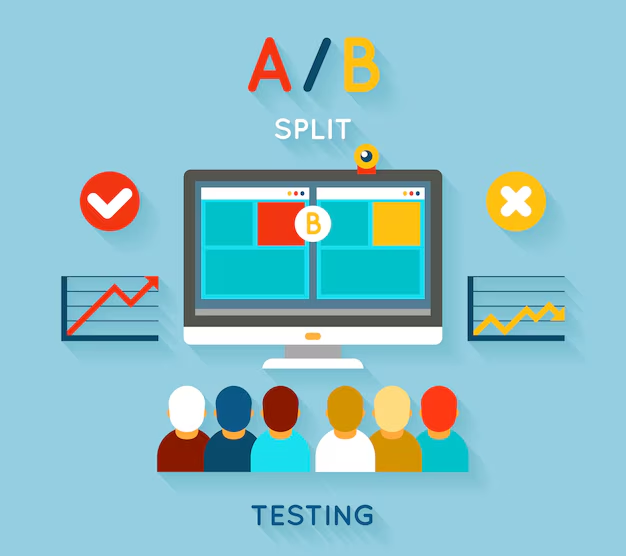A/B testing is a method of comparing two versions of a website or application to determine which version performs better. Visitors are randomly divided into two groups: one sees version A (the original) and the other sees version B (the modified). By analyzing user behavior, such as click-through rates or conversions, the more effective version is identified.
Advantages of A/B testing:
- Increase in conversions: By optimizing page elements (headlines, buttons, colors), you can achieve a higher conversion rate.
- Better understanding of users: By testing different versions, you can uncover your visitors' preferences.
- Data-driven decisions: Based on real test results, you can make effective changes.
Examples of use A/B testing:
- Testing different headlines or CTA buttons to find out which attract more clicks.
- Comparing different page designs to increase user engagement.
- Optimizing content layout to improve UX and increase sales.
Tools for A/B testing:
- Google Optimize: A free tool for easy A/B testing and content personalization.
- Optimizely: An advanced platform for experimenting and optimizing digital experiences.
- VWO (Visual Website Optimizer): A tool for A/B testing and increasing conversion rates..

